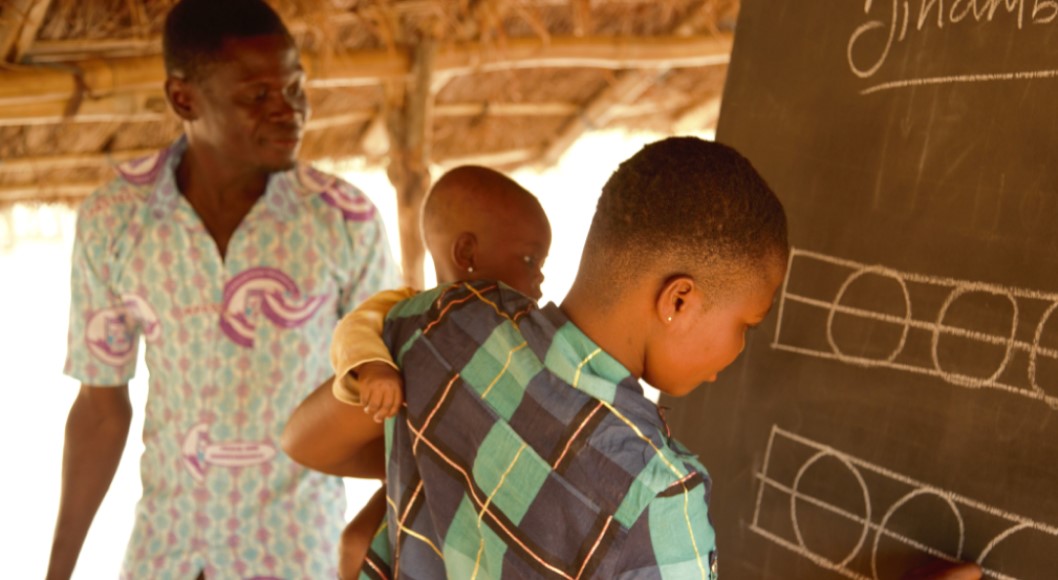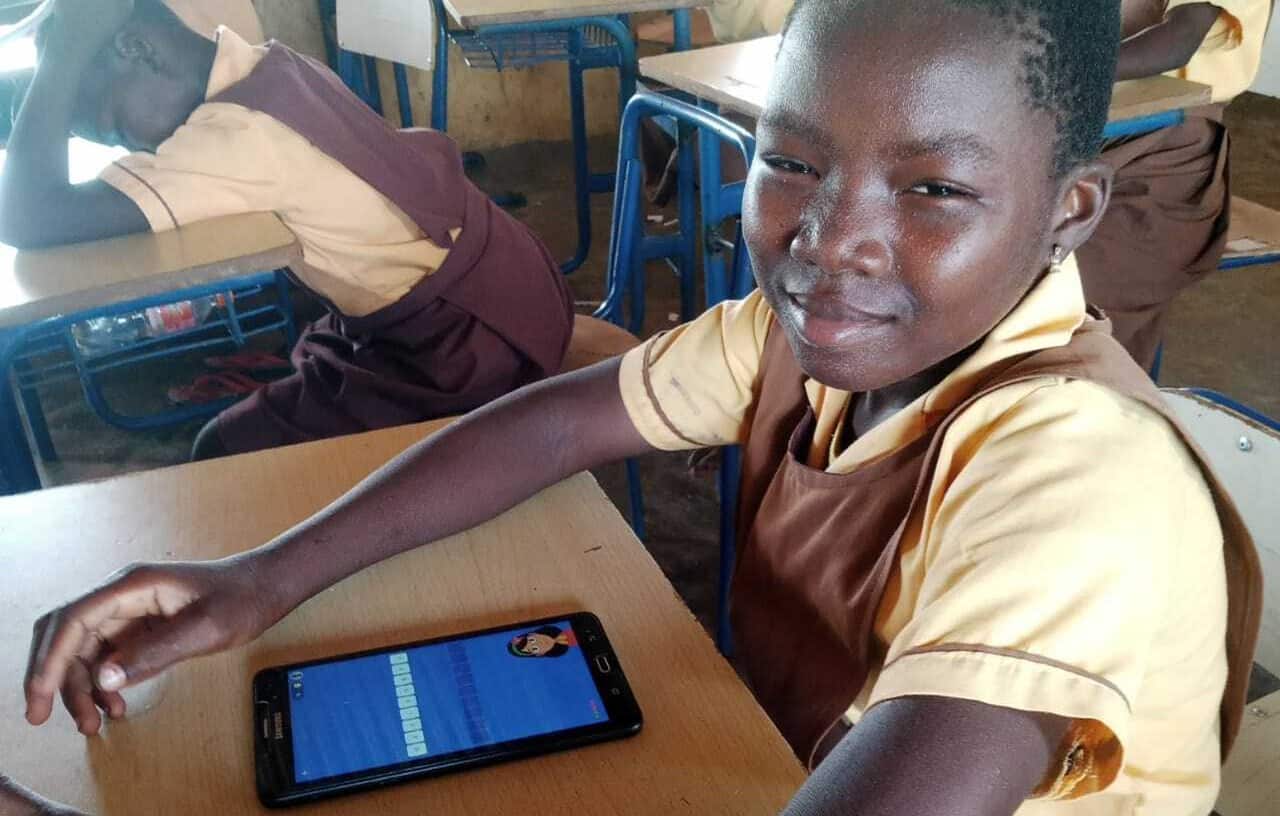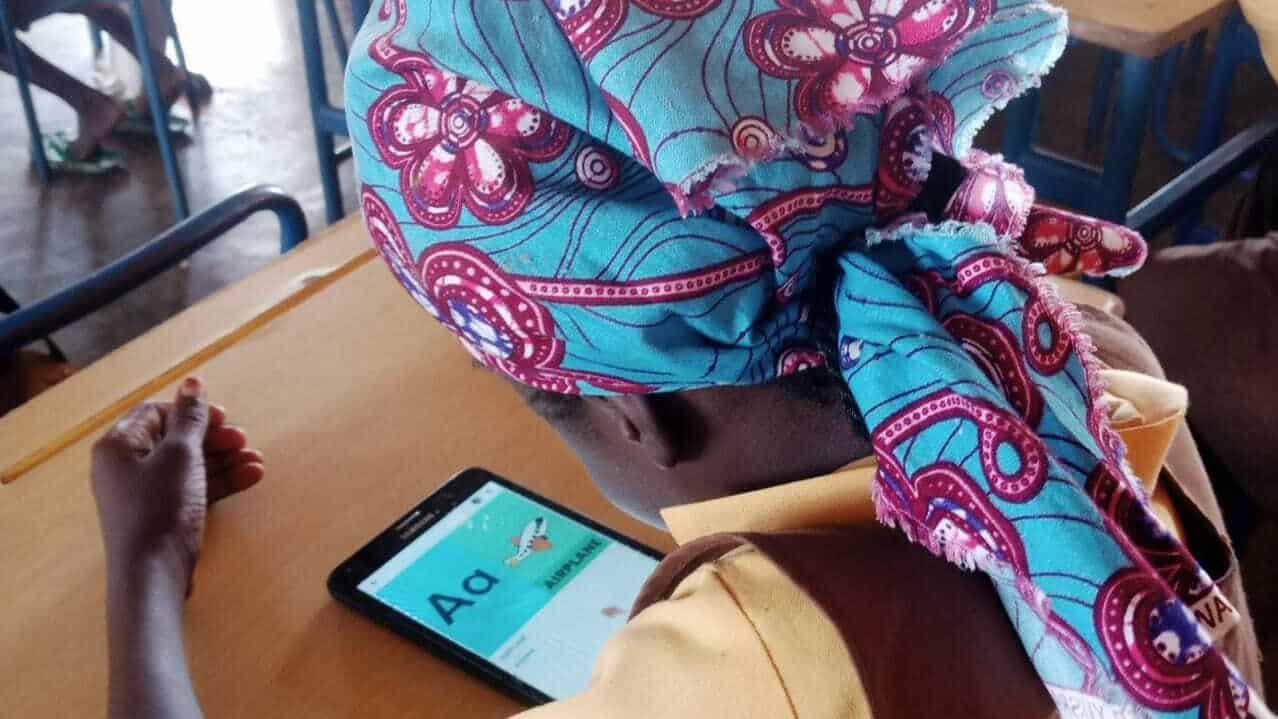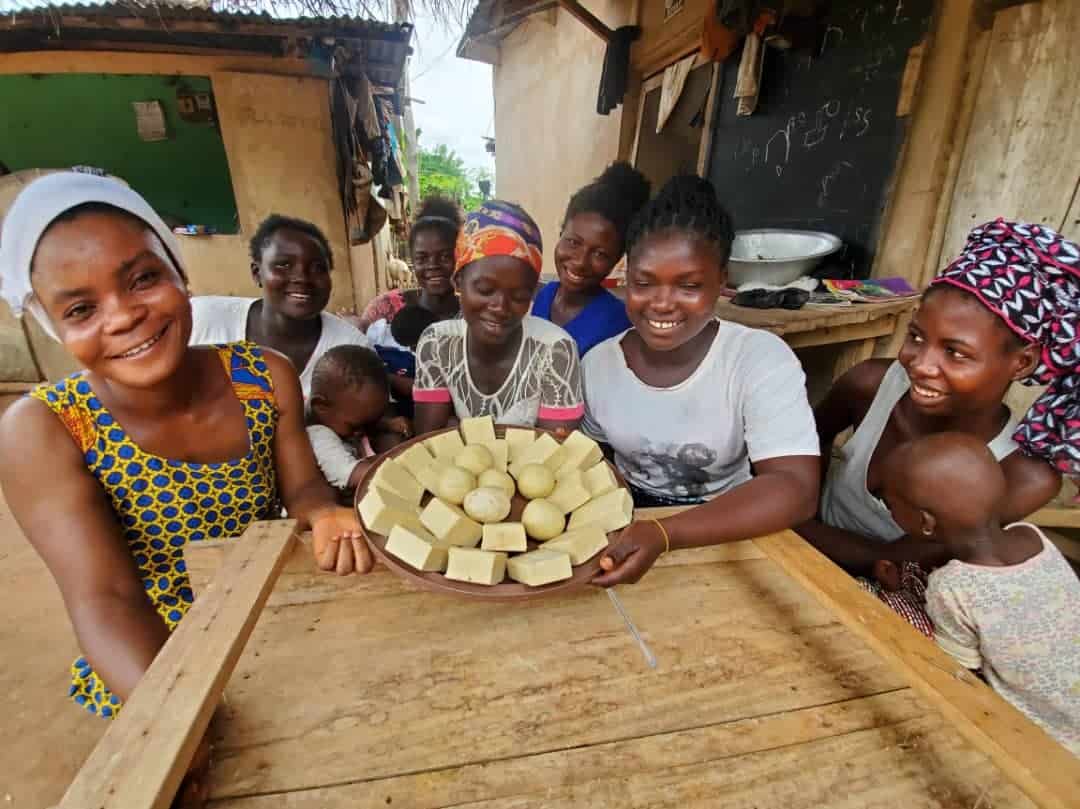The Strategic Approaches to Girls’ Education (STAGE) project lowered the barriers that girls face in achieving an education by providing formal and nonformal education tracks. The initiative operated in six regions of Ghana, specifically targeting districts and communities where high levels of extreme poverty, in combination with deep-seated traditional and social norms, negatively impact women and girls.
STAGE focused on girls who are highly vulnerable and systematically marginalized due to factors such as early marriage, pregnancies, disabilities, and others.
During COVID-19, STAGE worked to keep more than 11,250 out of school girls safe and engaged in learning. The impact of the COVID crisis is particularly challenging for marginalized girls and vulnerable adults. We guided communities to build tippy taps and practice proper hand washing techniques whilst engaging local crafts people to manufacture and provide soap. Child-friendly behavior change materials were distributed to sensitize communities about the importance of WASH, safeguarding, and girls' education. We also worked with the Ministry of Education and national partners to set up interactive radio instruction and SMS contact to keep girls engaged in learning while local community oversight committees provided mentoring where needed.
STAGE, a consortium led by World Education with local NGO partners, including Afrikids, Regional Advisory Information and Network Systems, Pronet, Link Community Development, Prolink, Ghana Red Cross, and the International Child Development Programme, worked together to improve learning outcomes in numeracy, literacy, and life skills, and to establish relevant and appropriate partnerships and pathways for the successful transition of more than 17,000 girls between ages 10 and 19.





